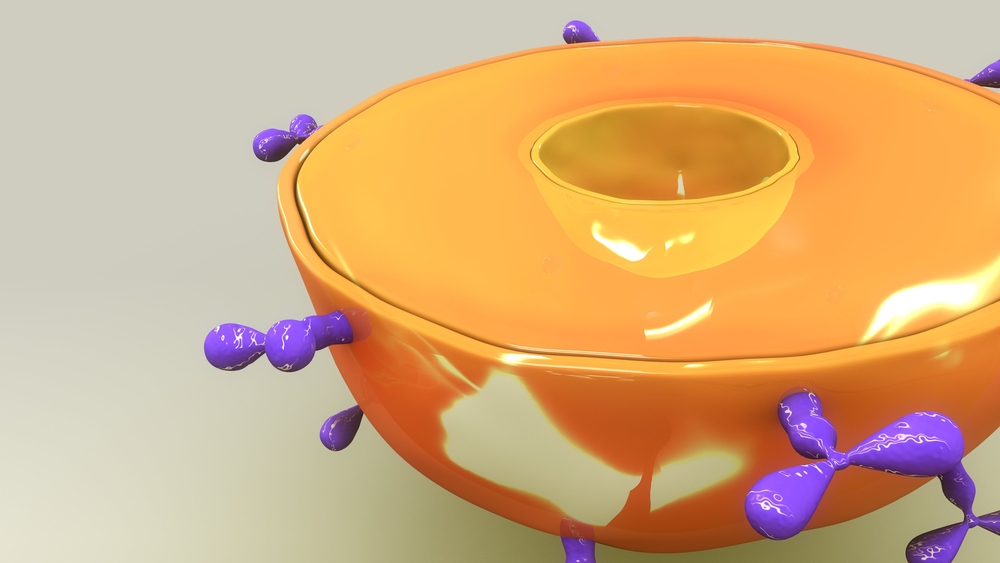Autoimmunity Traced to Failure of B-cell Protein, Caveolin-1, to Work as Intended in Study

A new and potentially important mechanism in the development of autoimmune diseases like multiple sclerosis was discovered by scientists at the University of Freiburg, Germany. They identify a protein, called Caveolin-1, that is essential to immune cells called B-cells working as intended to protect a person from pathogens or — in its absence — turning B-cells autoreactive and disease-causing.
The scientists’ study, “Caveolin-1-dependent nanoscale organization of the BCR regulates B cell tolerance,” was published in the journal Nature Immunology.
Autoimmune diseases are largely thought to develop as the result of a hyperactive immune system that, due to this hyperactivity, starts to attack its own cells and tissues. Increasing evidence, however, shows that the exact opposite, i.e., a weakened immune system, may also lead to autoimmunity.
Caveolin-1 (Cav1) is a membrane protein found in B-cells, important cells of the immune system that are responsible for tasks like generating antibodies in response to foreign invaders. These cells have receptors, called B-cell antigen receptors (BCRs), that are located at the cells’ membrane. In this manner, they are exposed and ready to recognize pathogens, such as bacteria or viruses.
The binding of BCR to a pathogen’s particular protein triggers a signalling cascade in B-cells that, together with other immune system cells, works to eliminate the threat.
Previous studies suggested that BCRs are not randomly distributed in the B-cell membrane, but rather are strategically placed in small islands that, upon binding to a foreign molecule, coalesce.
The researchers discovered that Cav1 is responsible for regulating the distribution of BCRs on the surface of B-cells. This finding means that Cav1 is an essential part of B-cell activation and the mounting of an effective immune response. Without it, the binding of B-cells to the invader is compromised, resulting in a significantly weakened immune response.
Most importantly, the research team showed that this mechanism is also what underlies the development of autoimmunity. B-cells depend on an efficient signal transfer from their receptors to distinguish a person’s healthy cells and tissues from the foreign patterns displayed by invaders. Without Cav1, the receptors are disorganized and, as a consequent, the efficient signal transfer fails.
Using mice, researchers showed that the loss of Cav1 leads to the development of autoreactive B-cells, those that attack the body’s own tissues.
Overall, these results shed light on an important new mechanism that may underlie the development of autoimmunity, knowledge that could be helpful in developing therapies for autoimmune diseases like MS.






